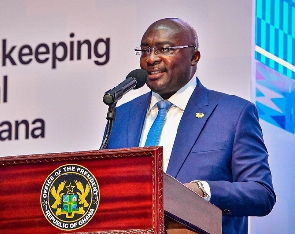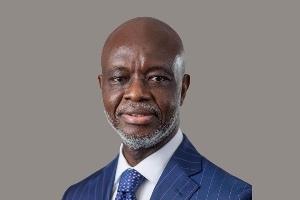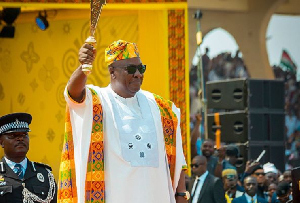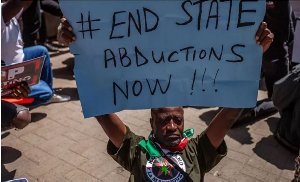Vice President Dr. Mahamudu Bawumia has underscored the importance of transitioning from a predominantly informal economy to a fully formalised one in strengthening economic growth.
He explained that a formalised economy will ensure a disciplined and transparent ecosystem as well as support the business community, especially the private sector. “One of the areas that can help our private sector immensely is to transition from the informal economy that we have in many countries, especially in Ghana. Before you can build an economy that is going to be transformational, you need to take care of major problems in the informal economy”.
He spoke at the Ghana Club 100 Awards in Accra, and added that efforts to formalise the country’s largely informal economy will help position businesses to harness full benefits from the African Continental Free Trade Area (AfCFTA).
“Society is undisciplined because the economy is informal and there are no consequences for bad actions; you have a society where corruption prevails, you have lawlessness, you have a tax-dodging society, you have an unbanked society, you have a loan repayment-dodging society, identity fraud, people assuming identities of others, lack of address systems, age-cheating, fake insurance, fake birth certificates, fake passports, no functional address systems, ghost workers on government payrolls among others,” Dr. Bawumia lamented.
While acknowledging government’s efforts in addressing some of the aforementioned through its digitalisation drive, he maintained that building the economy to be robust and transformational will require formalisation that addresses major problems of the informal economy.
“We have enrolled over 17 million people on the Ghana Card, we have linked all bank accounts to the Ghana Card and linked all SIM cards to the Ghana Card…we have linked the Ghana Card to the Controller and Accountant-General’s Department payroll. Today, we are increasing this formalisation of the economy as a result of digitalisation. We are digitalising all government services through Ghana.gov.gh and so on.
“All these bring transparency, and that helps businesses; it makes the system clearer, and it reduces corruption because you can get services without actually going to meet anybody who will demand a bribe,” he said.
On the AfCFTA, Dr. Bawumia iterated that its trade and investment potential cannot be overlooked as it is a beacon for economic growth.
He further urged businesses to explore partnerships and collaboration to enhance competitiveness.
AfCFTA is the world’s largest free trade area – embraced by 54 African countries with a 1.3 billion population and a Gross Domestic Product (GDP) of US$3.4trillion.
Chief Executive Officer-GIPC, Yofi Grant, also noted the need to leverage public-private partnerships and see them as a major means of building a more inclusive space.
He stressed that the country and continent at large have a responsibility to be its own agent of development to change the status quo.
He therefore pledged the Ghana Investment Promotion Centre’s commitment to further developing new avenues for improving private-sector engagement with government.
He assured that: “The event will continually help in promoting Ghana’s corporate capacity through creative media vehicles and activities, while securing government support to improve the corporate sector’s international competitiveness”.
Business News of Thursday, 14 December 2023
Source: thebftonline.com

















